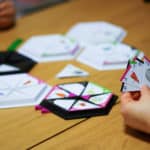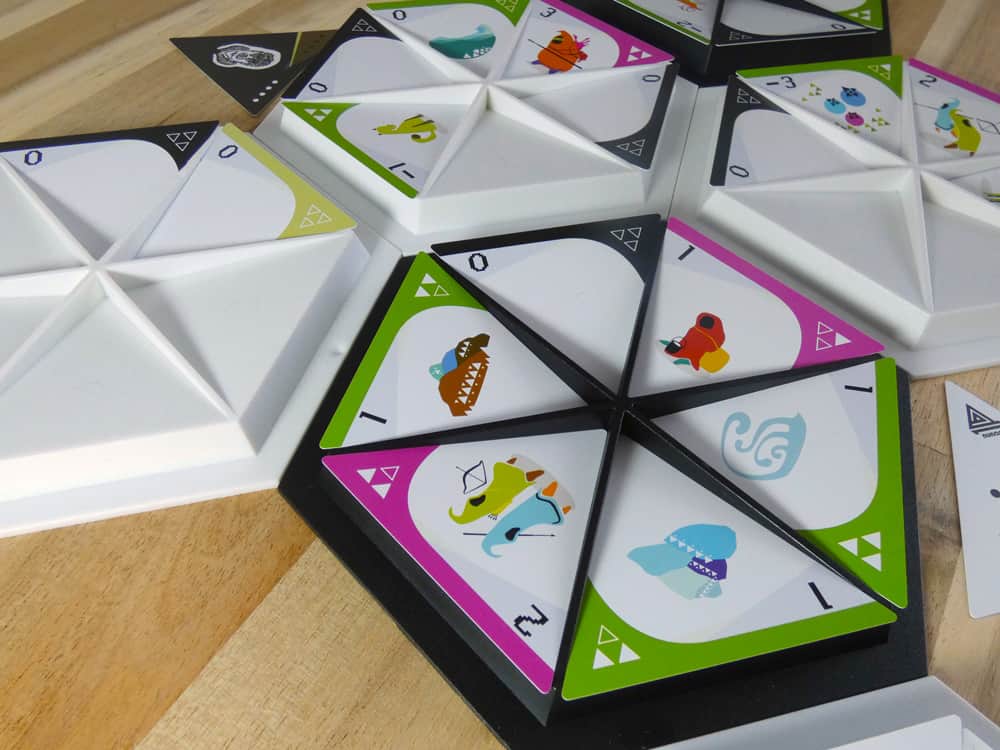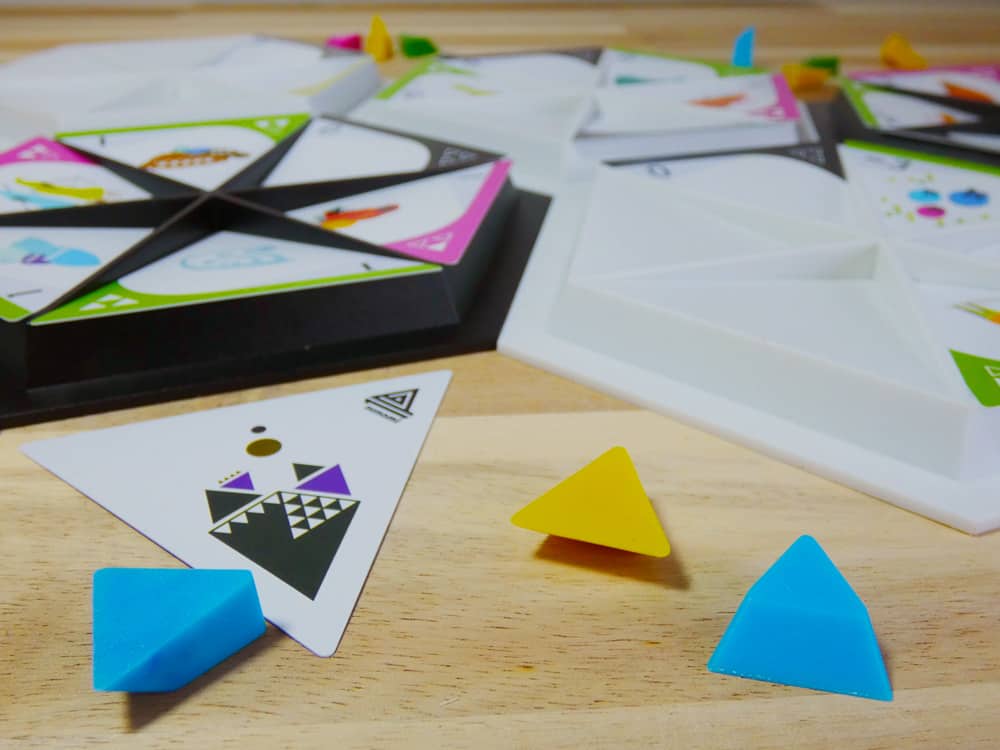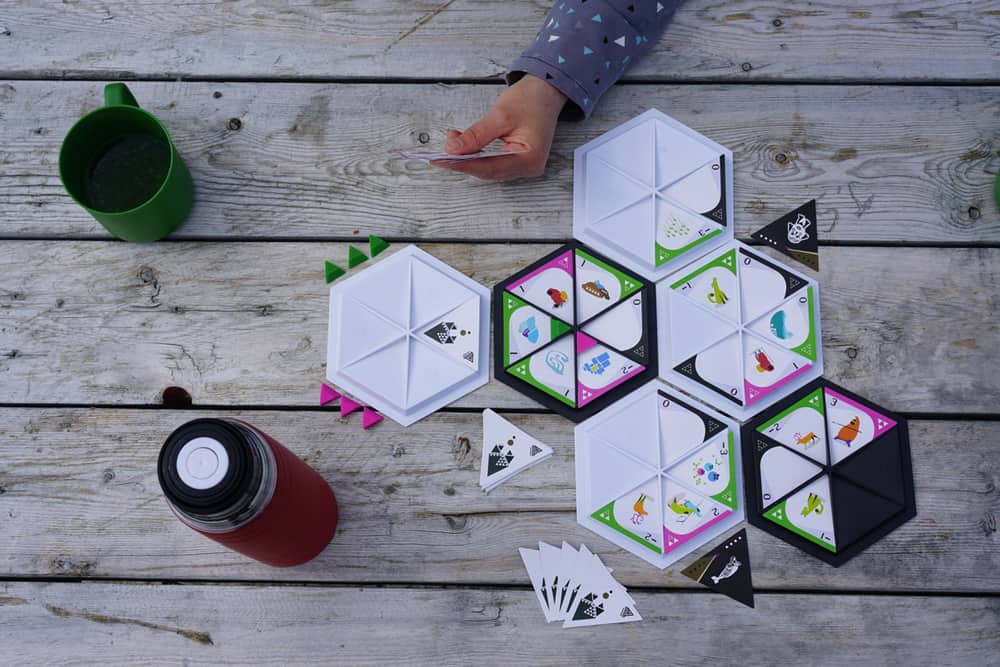By Steph Wong Ken
Games are often competitive, but what if a game encouraged cohabitation and collaboration, rather than individual gain? That’s the idea behind Nunami, a tabletop game created by Inuk-Québécois designer Thomassie Mangiok, which combines beautiful design with rules that promote working with other players, rather than against them.
Mangiok was inspired to make Nunami—an Inuktitut word that translates as “into the land”—after noticing the lack of representation of Inuit culture in the gaming world.
“I’m exposed to so much English when I go to the store or step outside,” he says. “What about Inuktitut? How are we sharing our history and our values? I felt it was important to remind people that our culture doesn’t live in the past, we can also exist in the future.”
Mangiok has operated his company, Pirnoma Technologies, in the small community of Ivujivik, Nunavik, since 2006. His design projects are often inspired by the remote openness of the land, as well as the town’s strong connection to Inuit culture.
With Nunami, Mangoik connects his passion for preserving Inuktitut with his love for exploration and nature. Drawing on the forms found in the game of Sternhalma (also known as Chinese Checkers), which he watched his aunt play as a kid, Nunami has rules that run counter to popular tabletop games, such as Settlers of Catan, in which players compete to exploit resources and out-develop each other. Mangiok was also inspired by Inuit stories of humans turning into animals, stressing the importance of seeing the land and animals as equal in value to people. He set out to create a game that would encourage respect and admiration for the diversity of animals and people.
“Our culture and our traditions allowed us to stay healthy in this environment, without pollution or war,” he notes of his Inuit roots. “So, I thought it might be useful to share Inuit values with others, to teach and to learn.”
To develop Nunami, Mangiok drew from his background as a graphic designer and computer programmer, as well as his propensity for learning new skills.
“I had no idea how to make a three-dimensional game, and I had to teach myself how to work with specific programs and materials,” he says. “It’s always a learning process.”
The tactile elements of Nunami, from the game pieces to the hexagon-shaped board, are designed to encourage outdoor exploration, hearkening back to Mangiok’s childhood in Ivujivik, when he was surrounded by nature. All of the game pieces are waterproof, made to last and hold up in the elements, and the game itself is easily portable. Mangiok’s design includes drawings by his daughter, and his mother was involved in creating the structure of the game, making for a collaboration across three generations. His hope is that Nunami will encourage players to appreciate different cultures, as well as see the value of sharing knowledge to support one another.
“We need more games that promote critical thinking and that address the well-being of nature, of the land and of creatures,” Mangiok says.
After a successful Kickstarter campaign, Nunami is currently available for purchase online and in stores, sitting on the shelves next to other tabletop games in Ivujivik, ready to be enjoyed. When he created Nunami, Mangiok wasn’t sure if anyone would want to play it, but he’s been happily surprised by the overwhelming interest in a game that promotes cohabitation and connection. The game is just one part of Mangiok’s ongoing mission to bring Inuit values and languages to a broader audience.
“I’m just happy when something I’ve made is in the world,” he says. “I’m compelled to make things, and I’m happy if people respond to them or find them useful.”





